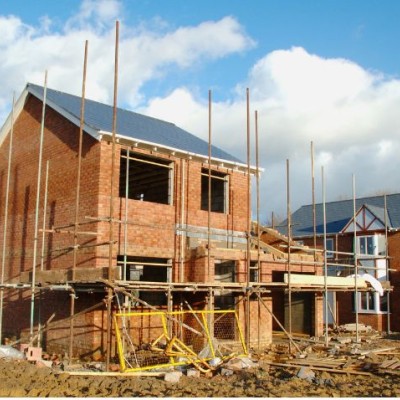How have the Conservatives performed on housing policies over the last 14 years?

Ahead of the General Election, we thought it would be useful to take a look at the key successes and failures of the Conservatives’ various housing policies since they took power in 2010.
As with all governments, it’s been a mixed bag - some of their plans were very positive and have worked well, while others were not so good or simply never came to fruition.
With devolved governments in Scotland (SNP) and Wales (Labour), we’re focusing here on policies in England.

What’s been good
Help to Buy scheme, 2013-2023
This was an equity loan scheme mainly to help first-time buyers get on the property ladder. As long as they had a 5% deposit, they could get a loan for up to 20% of the property’s value (40% in London), which was interest free for the first five years. Although some people have criticised the scheme for pushing up prices, the reality is that it helped a lot of people buy their first home. In May 2023, the official statistics showed that almost 390,000 properties had been bought over the 10 years of the scheme, with nearly 85% being first-time buyers.
First Homes scheme
Launched in the summer of 2021, this scheme offers first-time buyers the opportunity to buy a home for 30% to 50% less than its market value. It is only for those over 18 who earn under £80,000 a year (£90,000 in London) and who are able to secure a mortgage for at least half the price of the home. These may be new or resale homes, but they always remain in the scheme, so they can only be sold to another eligible buyer and the same discount must be applied as when the property was purchased. Although the scheme isn’t widespread through England yet, the Government has pledged to add 10,000 properties every year.
Build to Rent (B2R)
These are properties – generally large-scale apartment blocks with on-site facilities - that are built specifically with private renters in mind. The developments are usually owned by one landlord or management company and the individual units are not intended to ever be sold. The concept was launched by the government in 2012, with a £1bn fund to attract investment into the private rental sector from large institutions, and it has been a great success. According to the British Property Federation, as at Q1 2024, 208 local authorities now have Build to Rent in their pipeline, with the number of B2R homes receiving detailed planning permission being the highest on record.
‘Permitted development rights’ to convert commercial properties to residential
From 1st August 2021, the rules were changed to permit unused commercial property to be converted into residential homes without planning permission. However, prior approval must be sought from the local council and certain conditions must be met, including minimum bedroom sizes and all rooms having adequate natural light. As of 5th March 2024, the original 1,500 sq m maximum floor space limit for development, and requirement for the property to have been vacant for at least three months, have been removed. While the policy has, broadly speaking, been a success, there are ongoing concerns around housing quality, given that the minimum standards required to comply are fairly low.
Extending permitted development rights to private homes
The government extended permitted development rights to give homeowners more options for extending their home without having to seek planning permission. These include:
- A rear double-storey extension (provided it doesn’t take up more than half of the area of land around the home)
- A single-storey side extension
- Converting the loft
- Converting the garage
- Building a garden room (not used for sleeping accommodation)
However, in all these cases, there are certain specific rules that have to be met in order to fall within the permitted development scheme.
Passing of Leasehold Reform (Ground Rent) Act 2022
Since the end of June 2022, under this Act, ground rents on new leases and extensions to existing leases were restricted to a ‘peppercorn’ (zero) rent. While this was a welcome step, it did not address the issue of these spiralling costs for existing leaseholders.
Passing of Leasehold and Freehold Reform Bill
Introduced to Parliament towards the end of November 2023 last year, this Bill has just passed through the House of Lords.
“For years, the leasehold system has been a topic of contention, leaving homeowners and managers of blocks of flats grappling with uncertainties. This Bill increases leaseholders' rights, provides them with more control over their properties and makes lease extensions more affordable. It heralds a landmark shift in the leasehold system and a future in which homeowners are granted greater autonomy over their homes, with reduced costs and red tape.”
Robert Poole, Director, Glide (part of Leaders Romans Group)
While the passing of this Bill is certainly good news, it still does not address several important things that the Government had promised, including the removal or capping of ground rent for existing leaseholders.

What hasn’t worked so well
Failing to meet new homes target of 300,000 a year
In their 2019 manifesto, the Conservatives promised they would be delivering 300,000 homes a year by the mid-2020s. While they hit almost 250,000 in 2019-20, the following year recorded just under 218,000 (partly due to the pandemic), and between 2021 and 2023 the figures were under 235,000 a year. The Construction Products Association estimates the government will miss the target again this year by 40%.
Planning for new homes is still an issue
Despite holding a consultation last year on their proposals for overhauling the planning system and promising that their plans would mean “faster consenting, more effective consultation and more resources”, the Conservatives have failed to make a positive impact on the delivery of much-needed new homes. As at December 2023, more than 112,000 households in England were in temporary accommodation – up more than 12% from the previous year.
“Over the last parliamentary term, housebuilding has slowed down considerably: more than half a million new developments have been put on hold during the past five years and official data shows that only 19% of planning applications are processed within the recommended 13 weeks, compared with 57% a decade ago.”
Adrian Plant, Director of SOWN Shared Ownership (our sister company)
Shortfall in social housing at its highest for a decade
As at March last year, there were 1.29 million households in England on local authority waiting lists, up by 6% on the previous year. Many of these tenants on local housing allowance (LHA) are living in the private rented sector, so the fact that the Government also capped LHA and then froze it, as well as increases in inflation for the last four years, has made it even harder for social tenants to afford the private rental sector and discouraged landlords from letting to them.
“Politicians of all parties seem to be oblivious of the role that the private rented sector plays in providing housing for those who may be homeless due to a lack of social housing – a deficit which is growing by the day. A change in focus from penalising 'rogue landlords' to encouraging the many fair and honest landlords is much needed.”
Allison Thompson, National Lettings Managing Director
Building Safety Act 2022
On the one hand, this legislation was much needed, as was highlighted by the Grenfell Tower disaster. However, it has been poorly implemented and made buying and selling properties that fall under the scope of the Act more complex, which has resulted in many legal companies refusing to take on conveyancing for these transactions.
Renters (Reform) Bill shelved
Given that it had reached the 2nd reading stage in the House of Lords, we and most others in the industry believed that this Bill would pass before the General Election. But with the short run-up to 4th July, the government decided it was one of the bills that had to be abandoned. However, given that all the major parties have said they are in favour of scrapping section 21, the Bill is likely to be resurrected, whoever gets into power.
Plans to raise the minimum EPC rating to C scrapped
For a number of years, this was set to become law, with a bill making its way through Parliament that proposed an effective date of 31st December 2025 for new tenancies and from 31st December 2028 for existing tenancies. Even though most in the industry thought it unlikely that changes would go ahead in 2025, we did expect a minimum C rating to come into force before 2030, given the Government’s commitment to ‘net zero’. Although Rishi Sunak announced the plans had been scrapped in September 2023, we believe there is a strong likelihood that a new minimum rating will be proposed by the next government.
Looking for advice?
If you're looking to let or sell your property, we can help. Get in touch with your local branch or book in for a property valuation.

Contact Us
Got a question, general enquiry or something else?
You may also like
Since we started in 1987 we have grown to one of the UK’s largest property groups, we can save you time and money by offering a range of services and expertise under one roof.



